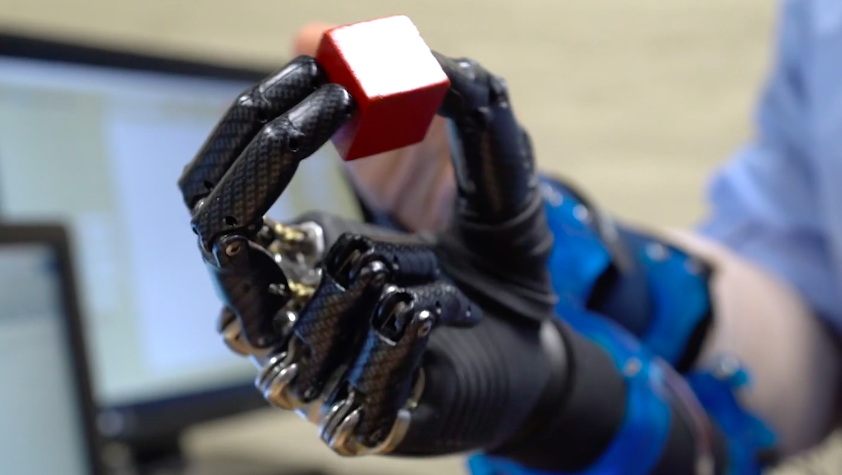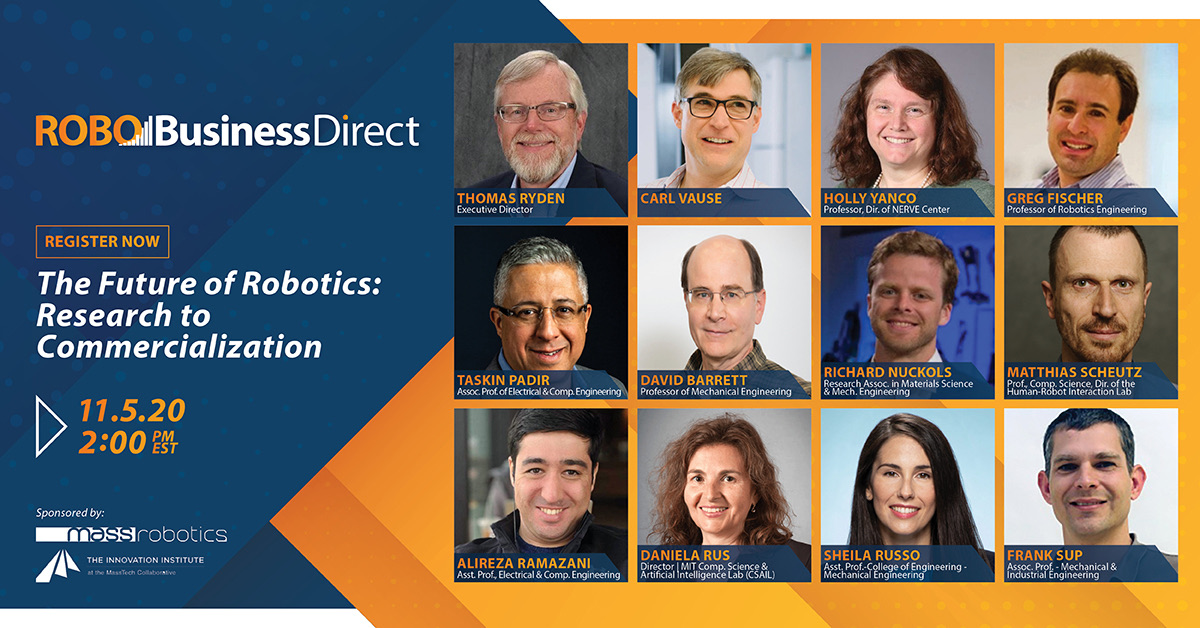
MassRobotics in collaboration with Massachusetts Technology Collaborative and in partnership with RoboBusiness Direct brought together a world-class lineup of robotics researchers to describe their ongoing initiatives and their potential impact on the commercial robotics sector. This session, hosted on November 7th, highlighted the strength and breath of the powerful Massachusetts robotics ecosystem with its world class universities and thought leaders.
The event was kicked off by keynote Daniela Rus, director of the MIT Computer Science & Artificial Intelligence Lab, and concluded with robotics veteran Carl Vause, former CEO Soft Robotics, Shaping the Future of Work Through Industry 4.0, Robotics and Software. In between these keynotes was a series of rapid-fire presentations from Massachusetts University researchers, giving attendees a peak into a variety of areas of robotics research that could be commercialized in 5 to 10 years.

Rapid-fire technology pitches include:
- Holly Yanco, Distinguished University Professor, Director of the NERVE Center, University of Massachusetts Lowell
- Greg Fischer, Professor of Robotics Engineering, Worcester Polytechnic Institute
- Taskin Padir, Associate Professor of Electrical and Computer Engineering, Northeastern University
- David Barrett, Professor of Mechanical Engineering, Olin College
- Richard Nuckols, Research Associate in Materials Science and Mechanical Engineering, Wyss Institute, Harvard John A. Paulsen School of Engineering and Applied Sciences
- Matthias Scheutz, Professor of Computer Science, Director of the Human-Robot Interaction Lab, Tufts University
- Alireza Ramezani, Assistant Professor of Electrical and Computer Engineering, Northeastern University
- Sheila Russo, Assistant Professor-College of Engineering – Mechanical Engineering, Boston University
- Frank Sup, Professor, Mechatronics and Robotics Research Laboratory, UMass Amherst
It’s an exciting time to be in robotics. The $100+ billion global robotics sector is growing rapidly and a new generation of robotics systems, collaborative robots in particular, have expanded the customer base for robots to include smaller businesses for manufacturing, materials handling, fulfillment, and beyond.
The Covid-19 pandemic has raised the awareness of the value that robots can provide, but it has also highlighted the limitations of today’s robotics systems, and the challenges that must be overcome before robots are deployed in large numbers. Thankfully, researchers are devising ways to make robots more perceptive and dexterous. New technologies are also being developed that allow robots to sense the world in ways that are far beyond human capabilities, and this sensing is supported and augmented by human-like cognitive abilities.
See full recording here.